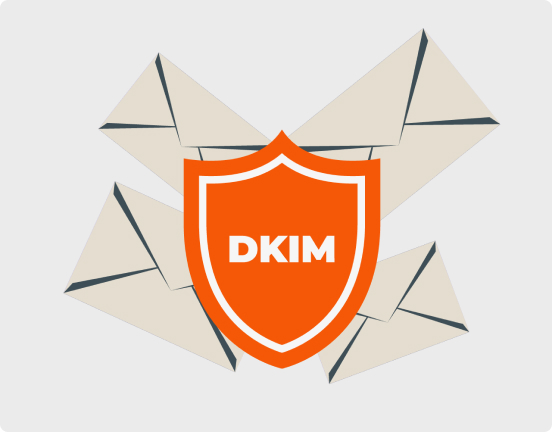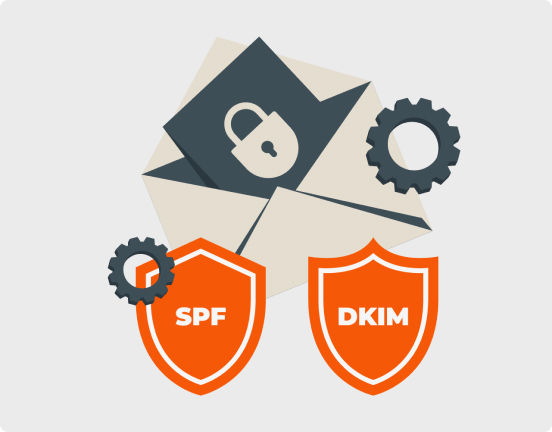In today’s interconnected world, where email forms the backbone of communication for businesses, maintaining a secure and credible email system is paramount. For small businesses, this means not only safeguarding sensitive information but also ensuring that emails actually reach their intended recipients. One of the key components of this email security framework is DomainKeys Identified Mail, commonly known as DKIM. In this article, we will explore the significance of DKIM for small businesses, how it enhances email deliverability, and the affordable solutions available for implementing DKIM.
What is DKIM
DomainKeys Identified Mail (DKIM) is an email authentication protocol designed to detect forged sender addresses in email messages. It works by allowing the sender to associate their domain name with an email message, thereby providing a form of digital signature. This signature can be verified by the receiving email server, ensuring that the email has indeed come from the claimed sender and has not been altered in transit. For small businesses, adopting DKIM is crucial not just for security, but for building trust with customers.
Why is DKIM Important for Small Businesses
Protection Against Email Spoofing
One of the leading threats to email communication is spoofing, where attackers impersonate a legitimate sender. With DKIM, any emails sent from your domain carry a unique signature that proves their authenticity, making it significantly harder for attackers to successfully mimic your communications.
Enhancing Email Deliverability
Many email service providers (ESPs) employ algorithms to filter out spam and phishing attempts. Emails lacking proper authentication measures such as DKIM may end up in the spam folder or be blocked entirely. By implementing DKIM, small businesses increase their chances of being delivered straight to the inbox, thereby improving customer engagement and communication efficiency.
Building Credibility and Trust
A DKIM signature not only secures email communication but also bolsters your brand’s reputation. When customers see that your emails are authenticated, they are more likely to trust the information contained within, which is vital for maintaining strong business relationships.
Compliance with Email Best Practices
Many ESPs and enterprise-level customers expect their partners to maintain certain standards in email security. Implementing DKIM is often a requisite for compliance with industry best practices, assuring clients and partners of your commitment to data integrity and security.
How Does DKIM Work
To understand DKIM’s functionality, it’s essential to break down its process into a few key steps:
Signing the Email
When an email is sent from your domain, the sender’s mail server generates a unique cryptographic signature based on the email’s content and headers. This signature is then added to the email as a header.
Verifying the Signature
Upon receiving the email, the recipient’s mail server queries the domain’s DNS records to retrieve the public key associated with the sender’s domain. It uses this key to decrypt the signature and compare it with the email’s contents to confirm the message’s authenticity. You can check your DKIM record using this tool.
Email Delivery
If the signature matches, the email is then accepted and successfully delivered to the inbox. If not, the email may be flagged as suspicious or rejected.
Implementing DKIM: Affordable Solutions for Small Businesses
For many small businesses, the technical aspects of DKIM may seem daunting. However, there are several simple and affordable solutions available:
Email Hosting Providers
Many email hosting services, such as Google Workspace and Microsoft 365, offer built-in support for DKIM. With just a few clicks in the admin console, small businesses can easily activate DKIM signing for their outgoing emails.
Third-Party DKIM Services
Companies like SendGrid and Mailgun provide user-friendly platforms that include DKIM setup as part of their email-sending services. These services often come with support and documentation to simplify the implementation process.
Consultation with IT Experts
For businesses lacking in-house expertise, hiring an IT consultant to set up DKIM can be a worthwhile investment. This approach ensures that DKIM is configured correctly and integrated with other security measures.
Conclusion
In an era where the integrity of email communication is under constant threat, small businesses cannot afford to overlook the significance of DKIM. Not only does it protect against threats like spoofing, but it also enhances email deliverability and builds customer trust. By implementing affordable DKIM solutions, small businesses not only secure their communications but also position themselves for success in a competitive marketplace. Investing in DKIM is not just a technical upgrade; it is a strategic decision that can pay significant dividends in fostering customer loyalty and credibility.
As small businesses continue to grow, ensuring strong email security should be at the forefront of their operational strategies. Taking the steps to implement DKIM today can lead to a more secure and trustworthy emailing experience tomorrow.




